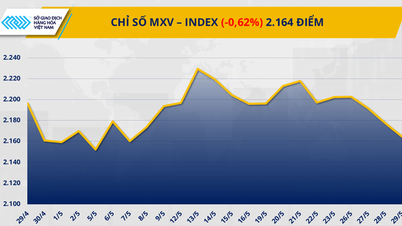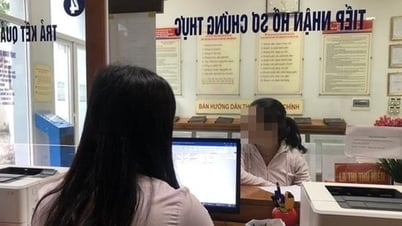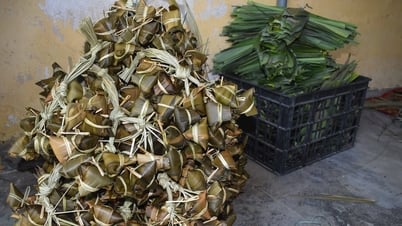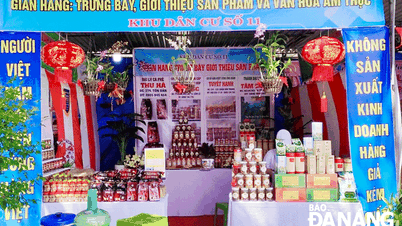This transaction seems simple and safe, but in fact there are still potential legal risks if the buyer does not have a clear understanding of the seller's information as well as related legal regulations.

The savings book market is bustling.
Because she needed to prove her financial resources to prepare for going abroad, Ms. Quynh Hoa (Dong Da district) sought advice on social networks. She was surprised to learn that there was a bustling “market” for savings books.
In some groups on Facebook, it is not difficult to find posts about transferring bank savings books. There is even a separate group called “Bank Savings Book Transfer Association” that was established over a year ago, attracting more than 4,200 members with continuous posts about buying and selling savings books.
Information such as: "Next Thursday, need to transfer a 350 million VND savings book with an interest rate of 12.1% at PVcomBank Nguyen Van Cu, Gia Lam. Deposited on February 17, 2023, due date February 17, 2026"; "Need to transfer a savings book at HD Bank - Nguyen An Ninh, Hoang Mai, Hanoi. I will pay the transfer fee"; "I need to transfer a 1 billion VND SHB savings book, due date May 22, interest rate 5.8%"... appear frequently in groups on social networks.
There are many reasons for the need to buy and sell savings books. Ms. Phuong Lan (Thanh Xuan district) shared: "My family's savings book is almost 8 months away from maturity, while I urgently need money to buy a house. If I withdraw the savings book immediately, I will no longer be able to keep the original 7.3% interest rate but will have to return to the non-term interest rate, so I decided to sell the savings book."
Ms. Lam Nhu (Hoang Mai district) is willing to buy back the savings book at 200 million VND because, in addition to the reason of being affordable and receiving an interest rate of 4.2%, the reason that the bank branch is near her house and the seller only collects 2 months of interest is the factor that makes her decide to make the transaction.
Monitoring the savings book transfer market shows that the demand for buying and selling savings books increases when the interest rate of banks decreases, both sellers and buyers want to keep the interest rate higher than before. Posts about savings book transfers all publicly disclose specific information about the bank name, deposit amount, interest rate and term, even clearly stating the transfer fee. Many savings books are advertised for sale with quite high deposit amounts, in some cases up to billions of VND.
Faced with the current situation of transferring savings books, many people are raising questions about the legality and safety of buying savings books on social networks.
Risk prevention
In fact, buying and selling savings books is a way to “circumvent the law”. Currently, there are no regulations on transferring savings books, only regulations on transferring ownership of savings deposits.
Lawyer Hoang Dinh (Hoang Hung Law Office - Hanoi Bar Association) said: "Article 14, Circular No. 48/2018/TT-NHNN dated December 31, 2018 of the State Bank stipulates that credit institutions guide depositors to carry out transactions to transfer ownership of savings deposits in accordance with relevant legal provisions".
Article 20 of the Regulations on savings deposits issued together with Decision No. 1160/2004/QD-NHNN dated September 13, 2004 of the State Bank also stipulates the transfer of ownership as follows: "The organization receiving savings deposits shall prescribe the procedures for transferring ownership of savings cards in accordance with relevant legal documents".
Currently, each bank has its own regulations on the procedures for transferring ownership of savings and the transfer fee ranges from 50,000 to 100,000 VND depending on the bank. The Joint Stock Commercial Bank for Foreign Trade of Vietnam ( Vietcombank ) stipulates the principle for transferring ownership as follows: "The owner of the savings card can transfer ownership to another person. The transferee is eligible to deposit savings. The transferred savings account has a normal operating status."
When performing the ownership transfer procedure, the depositor and the transferee must go to the bank's transaction point to perform the transaction, then the bank staff will confirm the ownership transfer and reprint a new savings card for the customer.
Saigon Thuong Tin Commercial Joint Stock Bank (Sacombank) stipulates that the person whose name is on the savings card can transfer ownership of all savings deposits of the current deposit period to another person. The procedure for registering the transfer of ownership of savings deposits can only be carried out at the transaction location that issued the savings card.
To ensure the rights and interests of the parties when transferring ownership of savings, experts recommend that people must go to the bank's headquarters, branches, and transaction offices to make transactions, have the bank confirm and complete the procedure of recording their names on the savings book.
Lawyer Hoang Dinh added: “To avoid possible risks, it is necessary to determine whether savings are joint property or the separate property of the person whose name is on the savings book. If it is joint property in marriage, when transferring ownership of savings, the consent of the other person is required.”
In addition, people should not transfer savings books by signing a money receiving authorization contract because the authorizer can unilaterally terminate the authorization contract before the savings book is settled or there will be unnecessary disputes from third parties related to the transfer of ownership. Thus, the transferee may be defrauded or involved in civil disputes.
Source: https://hanoimoi.vn/mua-ban-so-tiet-kiem-lieu-co-an-toan-703850.html



![[Photo] Prime Minister Pham Minh Chinh attends the event "Digital transformation of the banking industry by 2025"](https://vphoto.vietnam.vn/thumb/1200x675/vietnam/resource/IMAGE/2025/5/29/0e34cc7261d74e26b7f87cadff763eae)























![[Photo] Prime Minister Pham Minh Chinh receives leaders of Excelerate Energy Group](https://vphoto.vietnam.vn/thumb/1200x675/vietnam/resource/IMAGE/2025/5/29/c1fbe073230443d0a5aae0bc264d07fe)
































































Comment (0)